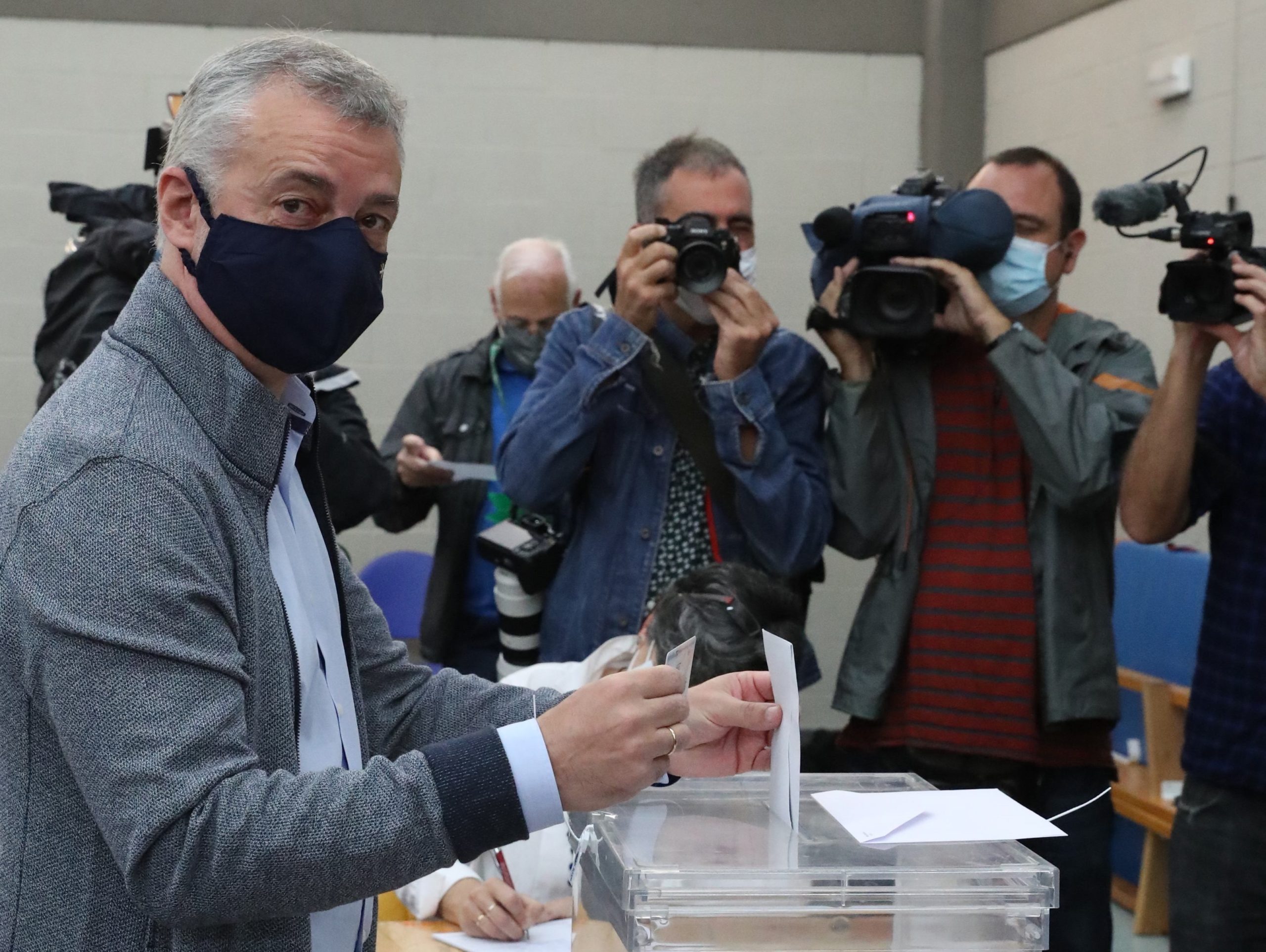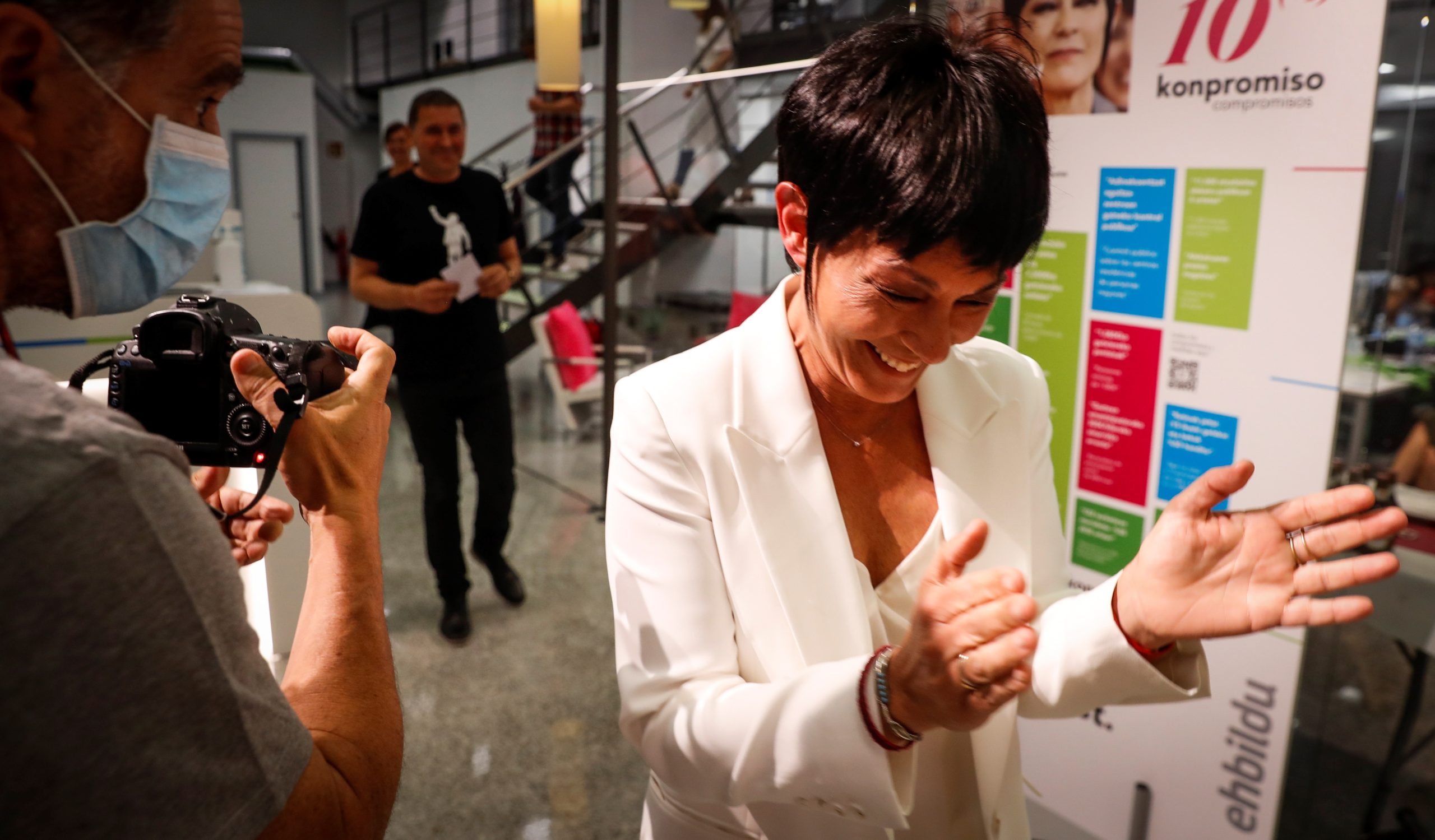As we explained in our previous article on politics, the citizens of the Basque Autonomous Community went to the polls on the 12th of July to elect the Basque Parliament which is located in Gasteiz. As we said then, there was controversy over the date chosen for elections, because there were people that felt that in a pandemic situation it wasn’t appropriate to hold elections, while others felt that it was the most appropriate date, especially since there is great uncertainty about what can happen this Fall with Covid-19.
The truth is that on July 12th the three provinces of the Community were in the post-confinement phase and there was only one active outbreak in Ordizia (Gipuzkoa), but abstention was very high with only a little more than half of voters showing up to vote. Undoubtedly, the pandemic was a significant part of the blame for this very high abstention, but it’s also true that, apart from that, there was some apathy about the elections. We can see that the coronavirus is not the only reason for low participation because there were elections held in the Spanish region of Galicia on the same day, and their participation increased compared to 2016. In short, we will have to wait until September and October to assess whether it was a good idea or not to move the elections to July.
The most important outcome after the election is that Iñigo Urkullu will once again be Lehendakari (President), since the two parties that have supported him until now, and will support him in the new legislature, have increased from 37 parliamentarians to 41, out of a total of 75, obtaining an absolute majority (50%+1). Reaching 38 was one of the coalition’s main objectives, as during the previous four years the government has suffered greatly from being a minority in Parliament. They’ve even surpassed this goal with 41 seats.

Urkullu’s party, PNV (Basque National Party), has been strengthened from these elections, getting 31 MPs (members of parliament), formerly 28, and increasing their vote percentage to 39.12%. The party has won in the three provinces of the Community and has shown great strength under very difficult circumstances for them. This was a big pat on the back for what’s to come, looking into the next few years, with the pandemic crisis still unresolved and an economic crisis which is expected to be significant.
The Basque Socialists of PSOE-PSE have also increased the percentage of votes (they achieved 13.64%) and the number of parliamentarians from 9 to 10. But these are not good results, even though leaders like Idoia Mendia have tried to convey the opposite. They’re not good results because the 2016 numbers were lousy, so a small increase over those elections is not necessarily something to applaud. And above all they’re not good results because the Basque Socialists have not taken advantage of the momentum that could come from their party currently ruling in Spain under president Pedro Sánchez. There are many reasons for these poor results, but some voices within the party have regretted that the party has not benefited from its work in the Basque Government whose nationalist partners have a great deal of power compared to them.
In the opposition, the left-wing pro-independence coalition EH Bildu was the other major winner on election day on July 12th. It achieved a percentage increase of votes of more than six points (up to 27.84%), also from 18 to 21 parliamentarians and even an increase of 23,000 voters. This last fact is very important because of the sharp increase in abstention the other parties (except VOX) have experienced, losing thousands of votes. These results put the coalition, led in this election by Maddalen Iriarte, in a position to continue to contest PNV’s hegemony in the future.

The Elkarrekin Podemos coalition has been one of the great defeats in these elections. It has dropped from 11 MPs to 6, taking 8.02% of the vote and falling to fourth place. This result is in line with the electoral failures that the federalist left-wing coalition, led by Pablo Iglesias, is recently experiencing in all parts of Spain (the same day in Galicia they sank from 14 to 0 parliamentarians), even though they are part of the Spanish government and have more institutional power than ever before. Their candidate for Lehendakari, Miren Gorrotxategi, has mentioned the internal division of the coalition to explain the debacle, but there are undoubtedly deeper reasons. During the electoral campaign, Elkarrekin Podemos leaders strongly insisted on the need to form a left-wing tripartite government with the Socialists and EH Bildu, and it seems that many of their voters have chosen to vote directly for the strongest of the three.
A sharp decline was also expected by the representatives of the Spanish right party, PP, which has taken place. They have fallen from 9 to 6 MPs, taking 6.75% of the vote. There were many close looks from Madrid to analyze the results of PP in the Basque Autonomous Community and in Galicia, since in both territories there were representatives of the two souls of the party: a more moderate candidate in Galicia and a Basque candidate for Lehendakari, Carlos Iturgaiz, more radical and more right-wing, imposed also from Madrid against the opinion of many Basque leaders. The success in Galicia and the Basque failure have encouraged moderate PP sectors to ask the party’s president, Pablo Casado, for a change of strategy.

Some of the votes lost by PP undoubtedly shifted to the far-right Spanish party VOX, which has obtained one MP. They won 1.97% of the vote, and it was the high abstention and electoral law that facilitated their entry into the Basque Parliament. Because 25 parliamentarians are distributed per province regardless of the number of voters, 4,700 votes were enough in a territory such as Araba to win that seat. In Galicia, with a better turn-out they have not obtained any seats. The other parties will now have to agree on how to act in the Basque Parliament in the face of the arrival of this party with a fascist tendency.
Both Iñigo Urkullu and his party have expressed a desire to speed up the formalities and to form the Basque Parliament as soon as possible, which will elect the Lehendakari, who will then immediately launch the new government. Numerous changes are expected to be made by the two political parties that will form it. The peace of mind they have gained from the achievement of a large majority will undoubtedly die down when they face the very difficult circumstances in which they will have to govern.


Be the first to comment on "Four More Years for Urkullu"